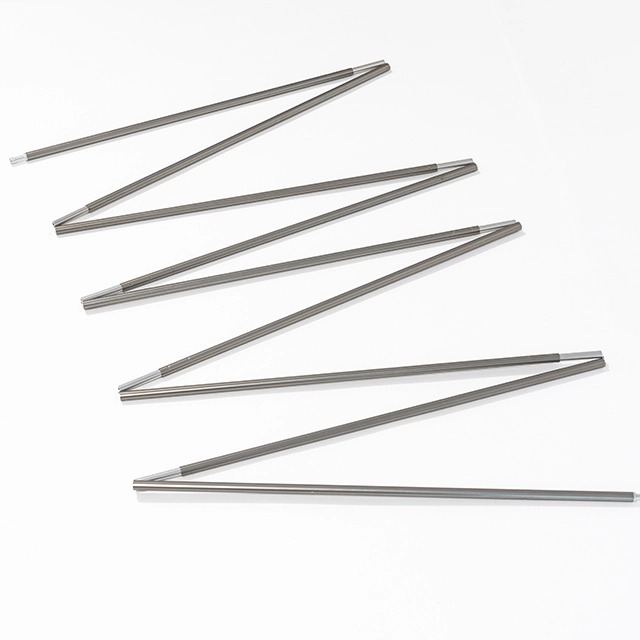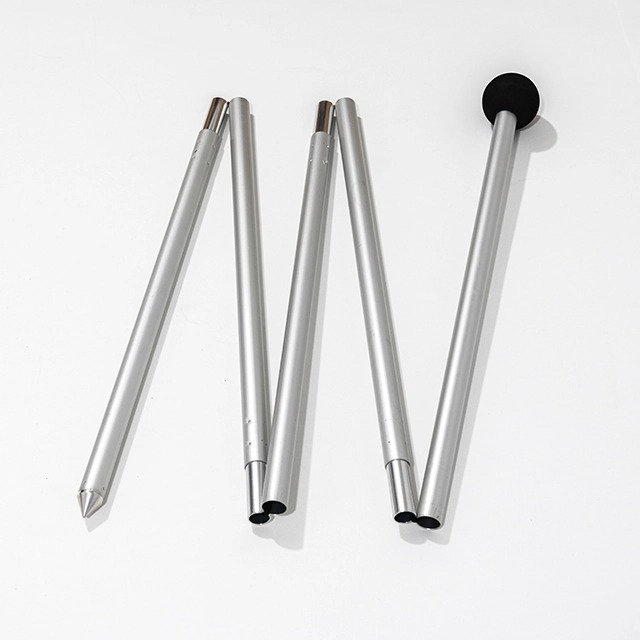In today’s fiercely competitive outdoor equipment market, customization plays a pivotal role in standing out. One such innovation is the Customizable Aluminum Tent Pole, which is no longer just a utility component but a key product differentiator. These lightweight, adjustable, and durable poles are rapidly becoming the preferred choice among manufacturers, retailers, and consumers who seek more than just standard options. But how exactly do customizable tent poles improve product differentiation and create a competitive edge? Let’s explore this in depth.
Understanding the Role of Tent Poles in Outdoor Gear
Tent poles are often the unsung heroes of outdoor shelters. They define the shape, structure, and integrity of a tent or tarp system. Traditionally made of fiberglass or steel, poles have evolved significantly with the advent of high-grade aluminum alloys. Aluminum poles offer a remarkable balance of strength, weight, and corrosion resistance, making them ideal for various weather conditions.
However, today’s outdoor enthusiasts demand more than reliability—they seek versatility, portability, and personal aesthetics. This has led to the growing demand for customizable aluminum tent poles, which can be tailored in length, color, finish, and locking mechanism.
Key Features of Modern Aluminum Tent Poles:
| Feature | Benefit |
| Telescopic Design | Allows easy length adjustment for different terrains |
| Anodized Coating | Enhances corrosion resistance and visual appeal |
| Multi-color Options | Enables branding or personalization |
| Lightweight Construction | Improves portability without sacrificing strength |
| Locking Mechanism (Twist or Flip) | Offers secure height stability under load |
With these features, customizable poles transition from generic components to strategic assets for product innovation.
![Customizable Aluminum Tent Pole Customizable Aluminum Tent Pole]()
Product Customization as a Competitive Strategy
In a saturated market filled with lookalike tents and shelters, product differentiation is key to capturing consumer interest and loyalty. Customizable components like aluminum tent poles allow brands to distinguish their offerings by tailoring features to specific customer needs or niche market segments.
1. Tailored Performance Across Applications
Outdoor shelters are used in diverse environments—from mountaineering expeditions to family camping. A customizable tent pole system enables manufacturers to design products optimized for:
High-wind resistance at alpine altitudes
Compact packing for backpackers
Aesthetic appeal for glamping setups
By selecting specific diameters, alloy grades (e.g., 6061 vs 7075), and surface treatments, manufacturers can target different use cases effectively.
2. Enhancing Brand Identity Through Visual Differentiation
Color customization is more than a cosmetic upgrade. It becomes a branding tool. Customizable poles offered in multi-color anodized finishes allow companies to maintain visual consistency across their product lines, strengthening brand recall and identity.
Even something as subtle as a color-matched pole with a brand logo laser-etched onto it can elevate perceived value. It’s about the details that signal quality to consumers.
Driving User Engagement and Satisfaction
Modern consumers gravitate towards products that resonate with their lifestyle and offer a sense of control. By offering a customizable aluminum tent pole, manufacturers provide an opportunity for users to become co-creators of their outdoor gear, fostering loyalty.
1. Adjustability Adds Value
Imagine a hiker setting up a tarp shelter in uneven terrain. Fixed-length poles can be frustrating, while telescopic poles with lockable heights offer flexibility. Whether for rain fly tensioning, uneven surfaces, or different tarp styles, customizable poles improve usability and satisfaction.
2. Aesthetic Personalization Builds Connection
When a camper selects a pole that matches their gear color scheme or features reflective accents for visibility at night, they are more emotionally invested in the product. This connection reduces return rates and boosts word-of-mouth marketing.
Manufacturing Efficiency and Supply Chain Advantages
Contrary to assumptions, customization doesn’t always mean increased cost or complexity. For suppliers and OEMs, working with modular tent pole systems offers several operational benefits.
1. Streamlined Inventory with Modular Design
By designing poles with interchangeable parts—sections of varied lengths, interchangeable caps or tips, and standardized connectors—manufacturers can reduce inventory while still offering a wide range of configurations.
For example:
This modular flexibility leads to reduced waste, faster fulfillment, and better response to market trends.
2. Local Market Adaptability
In international markets, different consumer expectations exist. European hikers may prefer minimalist setups, while North American campers value robustness. Customizable poles let manufacturers quickly adapt product offerings per region without overhauling their entire production line.
Building Value Through Technical Innovation
The core material—anodized aluminum alloy—provides a high-performance foundation. But innovation doesn’t stop at the material. Let’s examine how advanced features in customizable aluminum tent poles enable higher value creation.
Advanced Technical Benefits:
| Innovation | Description | Impact |
| Telescopic Design | Multiple extendable segments with locking mechanisms | Compact storage and adaptable usage |
| Anti-Slip Surface Finish | Textured or grooved surface | Better grip in wet conditions |
| CNC Machining Tolerance | High-precision manufacturing | Ensures smooth sliding and robust locking |
| Rubber/Plastic End Caps | Protects surface and improves traction | Enhances durability and user comfort |
These technical details reinforce that tent poles are no longer basic hardware—they’re performance-enhancing equipment.
![Customizable Aluminum Tent Pole Customizable Aluminum Tent Pole]()
FAQs About Customizable Aluminum Tent Poles
To further assist consumers and businesses in making informed decisions, here are some frequently asked questions:
Q1: What customization options are available for aluminum tent poles?
A1: Options typically include adjustable length, anodized color finishes, branding (laser etching or screen printing), diameter sizing, locking mechanisms (twist-lock, flip-lock), and end-cap styles.
Q2: Are customizable poles heavier than regular poles?
A2: Not necessarily. Using lightweight alloys like 7075-T6 and smart design (e.g., telescopic sections), customizable poles can retain low weight while offering added functionality.
Q3: Can these poles be used with all types of tents or tarps?
A3: Most are designed to be compatible with a wide variety of shelter systems. However, diameter and tip styles should be checked to ensure a proper fit.
Q4: Do colored anodized poles fade over time?
A4: High-quality anodized finishes are UV and corrosion-resistant, ensuring long-lasting color, especially when produced under controlled environments.
Q5: Are minimum order quantities required for custom orders?
A5: MOQs depend on the supplier. Many aluminum pole manufacturers offer flexible MOQ policies for OEM or ODM projects.
Conclusion
In a world where consumers expect product personalization, high functionality, and aesthetic appeal, the Customizable Aluminum Tent Pole is more than a support rod—it's a strategic advantage. As outdoor adventures continue to evolve, so will the expectations for gear. Investing in customizable tent pole technology is not just a trend—it’s a long-term value strategy for future-proofing your product line.













